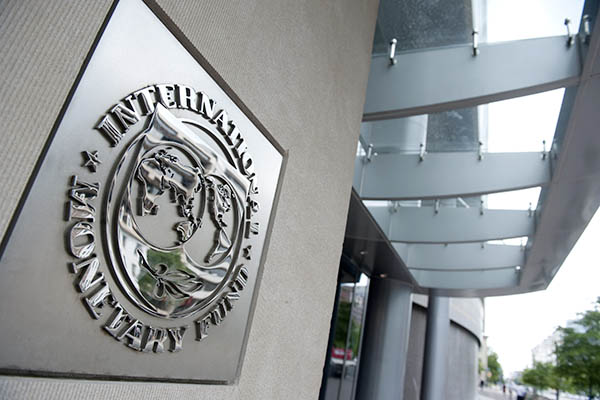
Saul Loeb—AFP
In statement, global lender says authorities still need to raise personal income taxes, rationalize power tariffs
The International Monetary Fund (IMF) on Wednesday formally revived a $6 billion Extended Fund Facility (EFF) for Pakistan, allowing for the release of a $1 billion tranche that is widely perceived to be key to resolving the country’s economic spiral.
“I am pleased to announce that the IMF Board has approved the 6th tranche of their program for Pakistan,” Finance Minister Shaukat Tarin announced on Twitter after the global lender’s Executive Board met in Washington, D.C. at Islamabad’s request for the completion of the sixth review of the EFF.
Following the completion of the review, Pakistan can draw SDR750 million (around $1 billion) from the IMF, bringing total disbursements thus far to SDR2,144 million (about $3 billion), according to a statement issued by the IMF. “The program aims to support Pakistan’s policies to help the economic recovery from the COVID-19 pandemic, ensure macroeconomic and debt sustainability, and advance structural reforms to lay the foundations for strong, job-rich, and long-lasting growth that benefits all Pakistanis,” it added.
While crediting the government for a “strong economic recovery” since summer 2020, the global lender noted that external pressures had started to emerge in 2021, including a widening current account deficit and depreciation pressures on the exchange rate that had boosted inflation. “The recent policy adjustment was appropriate to address these challenges and maintain economic stability,” it said, warning that inflation would likely increase this year before “gradually” slowing down. “Continued commitment to a market-determined exchange rate and a prudent macroeconomic policy mix will help reduce the current account deficit, and ease external pressures over the medium term,” it added.
Contrary to the government’s claims that it had fulfilled all “prior actions” required by the IMF to revive the stalled bailout program—including controversial bills granting autonomy to the State Bank of Pakistan and imposing a “mini-budget”—the IMF noted that the Executive Board had approved a request for “waivers of applicability and nonobservance of performance criteria.” It also stressed that going forward, authorities would have to implement further taxation measures, a dicey proposition for a salaried class that is already struggling under the weight of stagnant wages and rampant inflation.
“Maintaining the momentum on the reform of personal income taxation and harmonization of general sales taxes is essential,” said Antoinette Sayeh, deputy managing director and acting chair of the Executive Board after the meeting. “Broader reforms in tax administration and public financial and debt management are expected to further improve the fiscal framework,” she added, suggesting a boost to income tax rates ahead of the next tranche of the EFF.
Sayeh also suggested further hikes to electricity tariffs in Pakistan, stating: “Strong efforts to advance electricity sector reform are needed to restore the sector’s financial viability and address adverse spillovers on the budget, financial sector, and real economy.” She said a Circular Debt Management Plan envisaged “management improvements, cost reductions, alignment of tariffs with cost recovery levels, and better targeting of subsidies to the most vulnerable.”
The next review (seventh) under the $6 billion EFF program is due around April 2022, while the last and eighth review is expected to be done in September.
Pakistan and the IMF reached a staff-level agreement on economic policies for a three-year EFF in May 2019. Under the agreement, Pakistan was to receive about $6 billion over 39 months. The global lender’s initial conditions sought a reduction of the primary deficit to 0.6%; greater autonomy for the central bank; higher power tariffs; and a flexible exchange rate.
Following the revival of the EFF, say authorities, Pakistan can avail further aid and loans from other lenders and states, a key requirement for the country to overcome a widening current account deficit and shore up depleting foreign exchange reserves.
